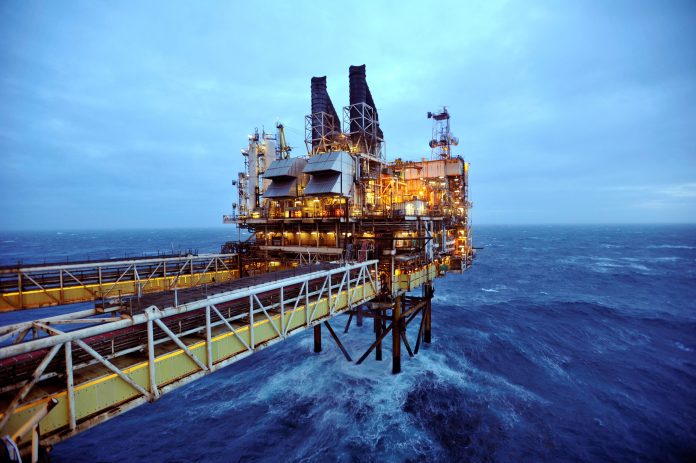
The UK will grant more than 100 new oil and gas licences in the North Sea as part of efforts to tap domestic supplies and become more energy independent, the government said on Monday.
Prime Minister Rishi Sunak said the move was compliant with the government’s environmental targets, with around a quarter of the UK’s energy demand due to still be met by oil and gas when the UK reaches net zero in 2050.
Sunak said that the new licences would support domestic supply, reduce reliance on hostile states, boost jobs in the sector and reduce the carbon footprint when compared with an alternative option of importing liquified natural gas.
“This will increase the UK’s energy security and reduce dependence on higher-emission imports, whilst protecting more than 200,000 jobs in a vital industry as we grow the UK economy” said the Government this morning
The government also announced plans to set up two new carbon capture usage and storage clusters in Scotland and northern England.
The Government has already committed to deploy CCUS in two industrial clusters by the mid-2020s – the HyNet cluster in North West England and North Wales, and the East Coast Cluster in the Teesside and Humber – and another further two clusters by 2030 – now confirmed as Acorn and Viking.
These four clusters will build a new thriving carbon capture usage and storage industry, which could support up to 50,000 jobs in the UK by 2030 says the Government.
“As the UK is a rapidly declining producer of oil and gas, new oil and gas licences reduce the fall in UK supply in order to ensure vital energy security, rather than increase it above current levels – so that the UK remains on track to meet net zero by 2050,” the government said.
This comes as new analysis released by the NSTA today shows that the carbon footprint of domestic gas production is around one-quarter of the carbon footprint of imported liquified natural gas. As the UK is a rapidly declining producer of oil and gas, new oil and gas licences reduce the fall in UK supply in order to ensure vital energy security, rather than increase it above current levels – so that the UK remains on track to meet net zero by 2050.
“There we have it folks.Rishi Sunak just sacrificed our children and grandchildren on the altar of fossil fuel capitalism.” tweeted Extinction Rebellion on the news






